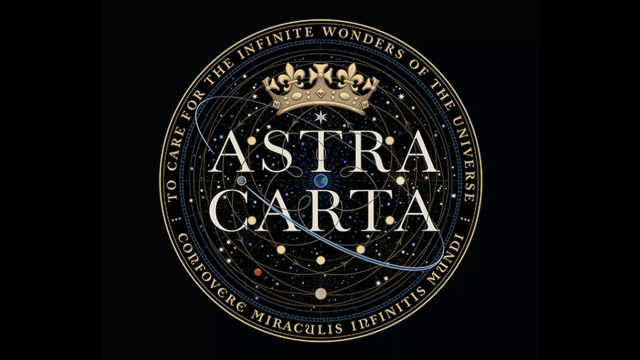King Charles III is really serious about keeping space clean, so much so that he unveiled the Astra Carta framework’s seal at Buckingham Palace yesterday.
The Astra Carta framework is a Sustainable Markets Initiative, as described in a Royal Family press release, which emphasises sustainable practices for space companies. Charles unveiled the seal at the Space Sustainability Event at the palace, which saw attendees, including scientists, astronauts, environmentalists, and celebrities — including former Canadian astronaut Chris Hadfield and musician and astrophysicist Brian May of Queen. Astra Carta also recognises the role of space in creating a more sustainable Earth, which humanity has made a “mess of,” King Charles said yesterday.
“Well, ladies and gentlemen, nothing can give me greater pleasure than to unveil this Astra Carta seal in the hope that as a result of all of you being here today and the meetings we’ve had already this morning, we can ensure the protection of outer space — having made rather a mess of this planet,” Charles said at the ceremony yesterday, as quoted by The National News.
The logo of Astra Carta was designed by Jony Ive and his team at LoveFrom, a global creative collective. Ive, a British product designer and former chief design officer of Apple, was inspired by “celestial rhythms” of Venus and Mars, the annular eclipse of the Moon, and constellations, according to the Sustainable Markets Initiative website. The seal mimics the similar Earth-focused Terra Carta initiatives’s logo, which features the same typography.
The need for sustainable space is crucial as interest in venturing into the final frontier has never been greater, with much of it now driven by the private space industry. Common practice amongst spaceflight parties is usually to leave discarded rocket stages, defunct satellites, and garbage in orbit, where they will either burn up in Earth’s atmosphere or orbit the planet under their own momentum. This practice has led to a build up of space junk that threatens future launches and currently orbiting spacecraft; the European Space Agency estimates that there are 36,500 pieces of space debris larger than 10 centimetres currently orbiting Earth.
As junk continues to accumulate in orbit, we may be facing a nasty case of Kessler Syndrome, which describes — as NASA scientist Donald Kessler warned in 1978 — a growing number of artificial satellites in orbit that will lead to a growing number of collisions and therefore a growing amount of debris. This debris could, in turn, make swaths of Earth’s orbit uninhabitable, or even wipe out satellites we rely on for communication and GPS.
It’s not immediately clear how Astra Carta will keep private companies enticed to pull their weight in keeping space clean — and the Royal Family’s release is delightfully hand-wavy on details — but it does help put pressure on those companies to act responsibly.
